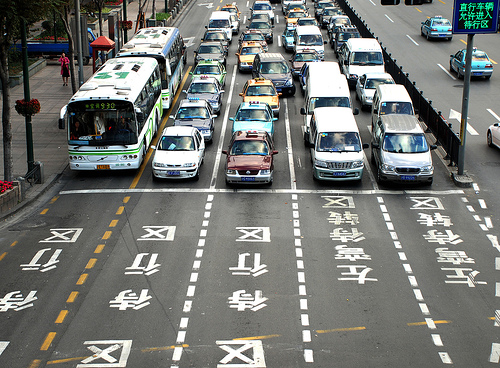Well, the numbers are in.
Despite the lingering effects of economic recession, the world's auto industry built more vehicles in 2011 than ever in history: 80 million, in fact.
That's a new record, and the number is 3 percent higher than the 2010 total. The data comes from the International Organization of Motor Vehicle Manufacturers, or OICA.
China built 18.4 million, more than the next two countries--the U.S. at 8.6 million and Japan at 8.4 million--added together. You can see the group's complete summary chart here.
The 2011 total supports the idea that a surging Chinese middle class will drive global vehicle production well past 100 million a year, certainly by 2020 and perhaps considerably sooner.
So the question becomes: How many vehicles will we have on the planet in the decades to come--and what will their impact on the environment be?
Sometime early in 2010, we crossed 1 billion vehicles on the planet, according to calculations by Ward's Auto.
That total includes passenger cars and light-duty trucks, medium- and heavy-duty trucks, and buses, but not heavy construction or any off-road vehicles.

Traffic in China
And it took essentially 125 years, from the first motor vehicle invented in 1886 until about two years ago.
Despite scrappage rates in the developed world--the U.S., a saturated market, has actually scrapped more cars than it's sold for three years now--surging car purchases in China, India, Brazil, Russia and other countries seem likely to grow the total dramatically in quite short order.
Which leads us to think that the second billion could come within a couple of decades.
Are we ready? Is the planetary atmosphere capable of absorbing that much additional carbon dioxide?
Leave us your thoughts in the Comments below.
+++++++++++













